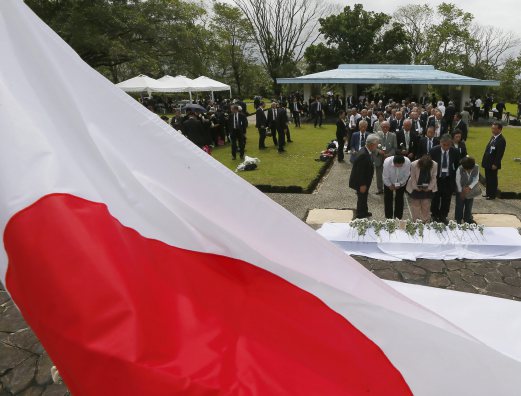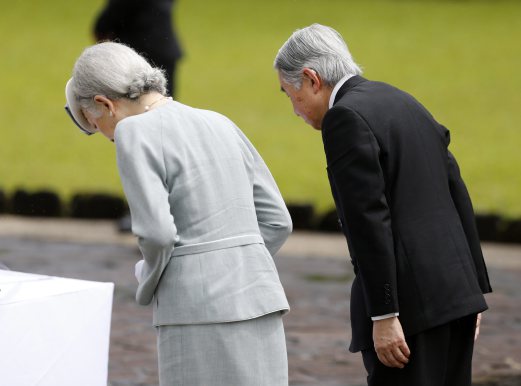CAVINTI, Philippines: With a mournful bow, Emperor Akihito paid his respects Friday at a hilltop war memorial near Manila to the largest number of Japanese invasion troops who died outside their homeland in World War II.
Clad in black and accompanied by Empress Michiko, they each laid a bouquet of white flowers and silently prayed near a marble cenotaph in the Japanese memorial garden along Lake Caliraya in Laguna province southeast of the Philippine capital.
Some of the 170 relatives of Japanese soldiers who witnessed the somber rites wept quietly.
Akihito did not speak at the ceremony. In his only public remarks related to Japan’s wartime aggression, he said at a state banquet hosted by President Benigno Aquino III on Wednesday that Japan should never forget the massive loss of lives in the war more than 70 years ago.
“During this war, fierce battles between Japan and the United States took place on Philippine soil, resulting in the loss of many Filipino lives and leaving many Filipinos injured,” said Akihito, adding it was something “we Japanese must never forget.”

Akihito has repeatedly expressed regret for the damage caused by the war, but has never offered a straightforward apology. The furthest he has gone is to express “deep” remorse in an address last year marking the 70th anniversary of the end of the war.
Akihito’s visit to the Philippines this week is the latest in a series of foreign trips seen as an attempt to show his commitment to peace and remorse for World War II, when Japanese forces invaded Asian nations in a brutal conflict Japan fought in the name of his father, Hirohito.
While he has been jeered on previous foreign visits, Akihito was welcomed with full state honors in the Philippines, which now depends on Japan as a leading trading partner, provider of development aid, and a major ally as Manila confronts an assertive Beijing in contested territories in the South China Sea. --AP


